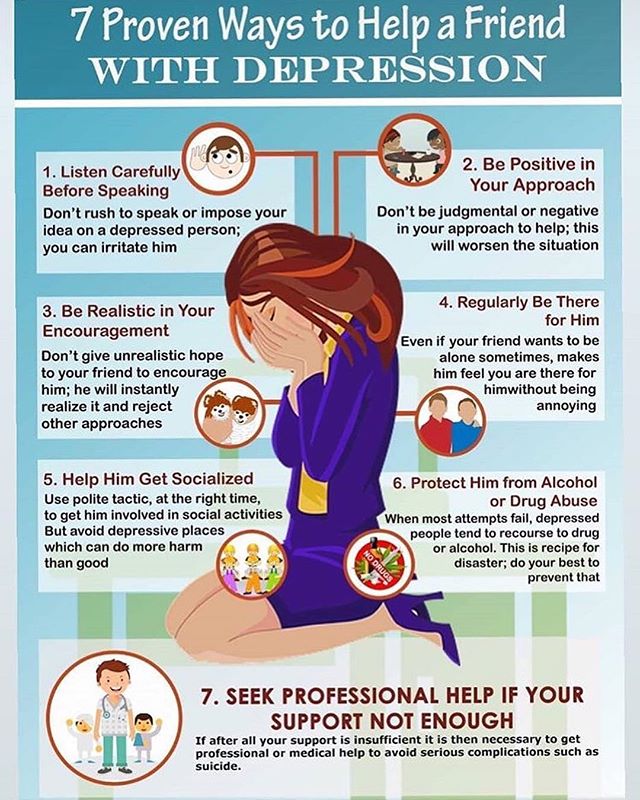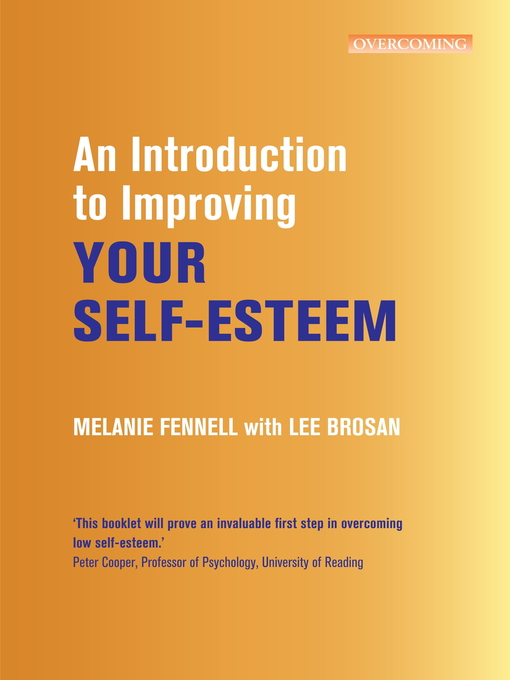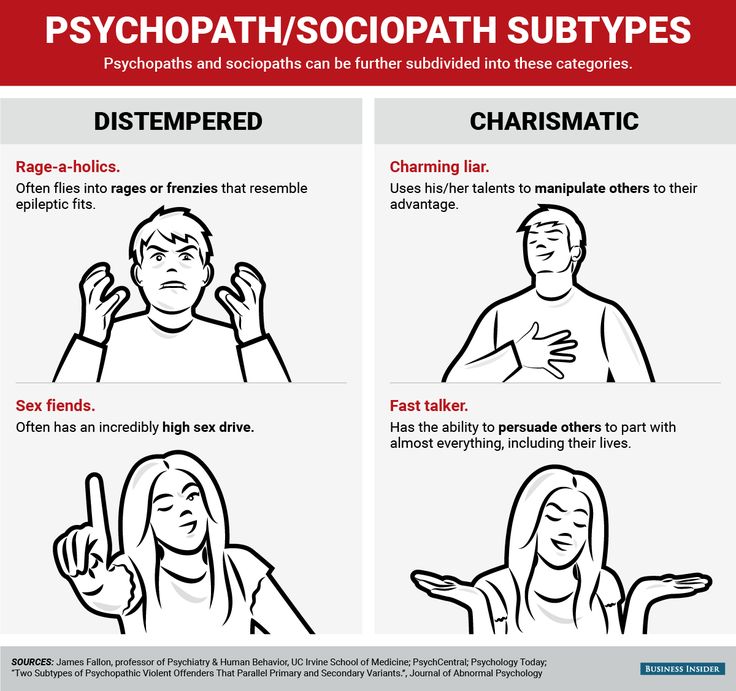Dealing with schizophrenic friend
Someone I love has been diagnosed with schizophrenia. How can I help?
Author: Canadian Mental Health Association, BC Division
We naturally want to help a loved one who isn’t feeling well. How we can or should help may seem fairly obvious when a loved one experiences a physical health problem, but many people say they’re not sure how to best help when a loved one experiences a mental illness like schizophrenia. Here are some tips:
Educate yourself
You don’t have to be an expert in schizophrenia, but learning more can help you understand what’s going on. There are a lot of myths about schizophrenia, so it’s a good idea to find some trustworthy resources. Our Schizophrenia info sheet is a great place to start. You can also find a lot of information from the BC Schizophrenia Society.
Listen
Sometimes talking about problems or concerns can really help. It’s important to understand that talking about something difficult like experiences of schizophrenia can be very hard for your loved one—and the symptoms of schizophrenia can also make conversations difficult. If a loved one opens up to you, listen actively—that is, without distractions like your phone or the TV. Really pay attention to what they have to say. Give them time to finish their thoughts, even if it takes a bit longer than usual. Listen with empathy and without judgement. Even if you don’t understand the problem or you see the problem in a different way, your main concern is the distress or difficult feelings your loved one is experiencing. You can find in-depth tips on listening and communicating well in Module Three of the Family Toolkit. Some people are not ready to talk about everything at once, or at all. That’s okay! Respect your loved one’s boundaries and let them tell you when they’re ready to talk.
Use empathy, not arguments.
Symptoms of schizophrenia like hallucinations (sensations that aren’t real, like hearing voices) or delusions (beliefs that can’t be true, like believing that you are being followed by a spy) can take some time to stop even when people are receiving treatment and following their treatment plan. As a group, these very distressing symptoms are called psychosis. Many people have a hard time responding to a loved one’s hallucinations or delusions. It’s best to avoid arguing about these experiences. Remember that delusion are symptoms of schizophrenia—they are not thoughts that you can talk someone out of. Telling someone that their experiences aren’t real or aren’t true doesn’t help when the experiences feel very real to that person! A better approach is to empathize with the feelings that hallucinations or delusions bring up—without confirming or denying the hallucination or delusion. For example, if a loved one is frustrated or upset when they hear voices, it isn’t helpful to say something like, “You’re okay! It isn’t real. I don’t hear anything.” Instead, you might say, “I can only image how upsetting that voice must be. I can see the voice makes you feel scared.” Know that with good treatment and support, symptoms like hallucinations and delusions become much easier for people to manage and lose importance.
As a group, these very distressing symptoms are called psychosis. Many people have a hard time responding to a loved one’s hallucinations or delusions. It’s best to avoid arguing about these experiences. Remember that delusion are symptoms of schizophrenia—they are not thoughts that you can talk someone out of. Telling someone that their experiences aren’t real or aren’t true doesn’t help when the experiences feel very real to that person! A better approach is to empathize with the feelings that hallucinations or delusions bring up—without confirming or denying the hallucination or delusion. For example, if a loved one is frustrated or upset when they hear voices, it isn’t helpful to say something like, “You’re okay! It isn’t real. I don’t hear anything.” Instead, you might say, “I can only image how upsetting that voice must be. I can see the voice makes you feel scared.” Know that with good treatment and support, symptoms like hallucinations and delusions become much easier for people to manage and lose importance.
Ask how you can help. When people experience a serious mental illness like schizophrenia, they may want to plan how they can take action if they start to feel unwell again, especially if they have dependent children. These plans, such as advanced directives or Ulysses Agreements, are made when a person feels well and are meant to communicate their wishes to loved ones and their care team. Ask your loved one if they have a plan in place so you know what they need if they need help. If you’d like to learn more about planning for care, see the BC Schizophrenia Society.
If a loved one is experiencing an episode of psychosis or is recovering for an episode of psychosis, they might need extra help. For example, people who are actively experiencing hallucinations or delusions might need a lot of personal space and feel uncomfortable being around a lot of people or even making eye contact. When people are recovering from an episode of psychosis, they may need a quiet space and a lot of rest. Sometimes people can get back into their usual routines fairly quickly, while other times it may take a lot of time (and effort) to get back into routines. Keep in mind that too much help can be a bit counterproductive. It may well be faster and easier for you to take care of your loved one’s tasks or chores yourself, but rebuilding activity and confidence are a big part of recovery. Encourage and support your loved one as they take on daily responsibilities, and let them tell you when they need extra help.
Sometimes people can get back into their usual routines fairly quickly, while other times it may take a lot of time (and effort) to get back into routines. Keep in mind that too much help can be a bit counterproductive. It may well be faster and easier for you to take care of your loved one’s tasks or chores yourself, but rebuilding activity and confidence are a big part of recovery. Encourage and support your loved one as they take on daily responsibilities, and let them tell you when they need extra help.
Don’t take it personally
Schizophrenia can be a difficult illness—for everyone. During episodes of psychosis, your loved one may experience frightening sensations that you can’t understand. They may act in ways that you don’t understand. Other symptoms of schizophrenia can make it hard for people to express emotions or feelings, communicate clearly, or seem interested in others. It’s important to know that these are symptoms of an illness. They are no one’s fault, but they can still be hard to cope with. Consider reaching out to a family and friends support group for your own support. The BC Schizophrenia Society has a directory of groups around BC at www.bcss.org/monthly-meetings-calendar/.
Consider reaching out to a family and friends support group for your own support. The BC Schizophrenia Society has a directory of groups around BC at www.bcss.org/monthly-meetings-calendar/.
Take care of yourself, too
As a family member, it’s important to take care of yourself. Try to maintain your regular schedule and activities, such as your exercise routine and hobbies. Ask another family member or good friend to provide help with caregiving, especially in the early days of your loved one's illness. If you need help balancing time for self-care with caregiving duties, check out the BC Schizophrenia Society’s Family Respite Program.
Maintain your social network
Try to maintain your friendships or the network of people that you have in your life. These will later become important supports as your loved one recovers. Educate them and update them on your loved one's recovery. People are sometimes afraid to ask questions about schizophrenia and this will put them at ease.
Encourage your loved one to keep up with their treatment and recovery plan
This is very important! You are not responsible for your loved one’s treatment (unless your loved one is your child under 19), but you can support them. Schizophrenia can make it difficult for people to make and go to appointments and follow their treatment plan. With your loved one’s permission, you may choose to help by reminding them of appointments, taking them to appointments, or whatever helps in your situation. If your loved one isn’t happy with their treatment or would like to try a new approach, you can encourage them to talk with their care team, like their doctor or mental health team—it can be dangerous to stop or change a treatment without a doctor’s support.
Treatment can be a difficult area for loved ones. It’s hard to see someone you love in pain. You might be scared of the things your loved one is experiencing. You want to help. But in order for any treatment to work, your loved one needs to be active in their care. Forcing or threatening treatment generally doesn’t work (or if it does, in the case of an emergency, only for a short time) and can often hurt everyone involved. In most cases, anyone 19 years of age and older and not at risk of harm is free to make their own choices. And their choices may include refusing treatment or choosing a treatment that you disagree with. It helps everyone if you can be respectful and keep honest communication open between you. You can learn more about dealing with this situation in Q&A: An adult in my life seems ill and won’t find help. What can I do?.
Forcing or threatening treatment generally doesn’t work (or if it does, in the case of an emergency, only for a short time) and can often hurt everyone involved. In most cases, anyone 19 years of age and older and not at risk of harm is free to make their own choices. And their choices may include refusing treatment or choosing a treatment that you disagree with. It helps everyone if you can be respectful and keep honest communication open between you. You can learn more about dealing with this situation in Q&A: An adult in my life seems ill and won’t find help. What can I do?.
Take action if you think you or your loved one is in danger
If you think your loved one is at risk of harming themselves or others and they refuse help, it is possible to have them evaluated by a psychiatrist under the Mental Health Act. This process may involve police and other first responders, and it can be a difficult and stressful process for everyone. But it can also be a necessary step if someone is in danger. You can learn more about the Mental Health Act in the info sheet Families Coping with a Crisis and you can find the Guide to the Mental Health Act at www.health.gov.bc.ca/library/publications/year/2005/MentalHealthGuide.pdf. For a more in-depth discussion of the Mental Health Act, see a video with lawyer and health law consultation Gerrit Clements.
You can learn more about the Mental Health Act in the info sheet Families Coping with a Crisis and you can find the Guide to the Mental Health Act at www.health.gov.bc.ca/library/publications/year/2005/MentalHealthGuide.pdf. For a more in-depth discussion of the Mental Health Act, see a video with lawyer and health law consultation Gerrit Clements.
If your loved one says that they have thoughts of ending their life, it’s important to take action. Call 1-800-SUICIDE (1-800-784-2433) at any time or message online at www.crisiscentrechat.ca between noon and 1am. If you think your loved one is in immediate danger, you can always call 911 or go to a hospital emergency room.
Where can I learn more?
- Dealing with Psychosis: A Toolkit for Moving Forward with Your Life is aimed at people experiencing schizophrenia, but it has good information on symptoms and strategies for managing the illness. There is also a chapter for support people
- Helping a Friend You're Worried About info sheet
- Supporting a Friend or Family Member with a Mental Illness info sheet
- The Family Toolkit workbook—it has good information for anyone who is supporting someone they care about
- Family Self-Care and Recovery from Mental Illness workbook
- Preventing Relapse of a Mental Illness info sheet
About the author
The Canadian Mental Health Association promotes the mental health of all and supports the resilience and recovery of people experiencing a mental illness through public education, community-based research, advocacy, and direct services. Visit www.cmha.bc.ca.
Visit www.cmha.bc.ca.
© 2016 | Back to Q&A | Email us a question
Helping Someone with Schizophrenia - HelpGuide.org
schizophrenia
Have a loved one with schizophrenia? Your support can make a huge difference by helping them find the right treatment, cope with symptoms, and build a rich, satisfying life.
When a loved one has schizophrenia
The love and support of family and friends plays an important role in schizophrenia treatment and recovery. If you have a loved one with schizophrenia, you may be struggling with any number of difficult emotions, including fear, guilt, anger, and frustration. You may feel helpless in the face of your loved one’s symptoms, worried about the stigma of schizophrenia, or confused and embarrassed by their strange behaviors. You may even be tempted to hide your loved one’s illness from others.
But it’s important to remember that a diagnosis of schizophrenia is not a life-sentence. Recovery is possible, especially with your love and support. To help someone with schizophrenia, it’s crucial you:
To help someone with schizophrenia, it’s crucial you:
- Accept the illness and its difficulties.
- Not buy into the myth that someone with schizophrenia can't get better or live a full and meaningful life.
- Do your best to help your loved one feel better and enjoy life.
- Pay attention to your own needs.
- Maintain your sense of humor and remain hopeful.
While dealing with a loved one’s schizophrenia can be challenging, the following strategies can help you guide your loved one on the road to recovery without losing sight of your own hopes and dreams.
Tips for helping a loved one with schizophrenia
Educate yourself. Learning about schizophrenia and its treatment will allow you to make informed decisions about how best to cope with symptoms, encourage your loved one to pursue self-help strategies, handle setbacks, and work towards recovery.
Reduce stress. Stress can cause schizophrenia symptoms to flare up, so it's important to create a structured and supportive environment for your loved one.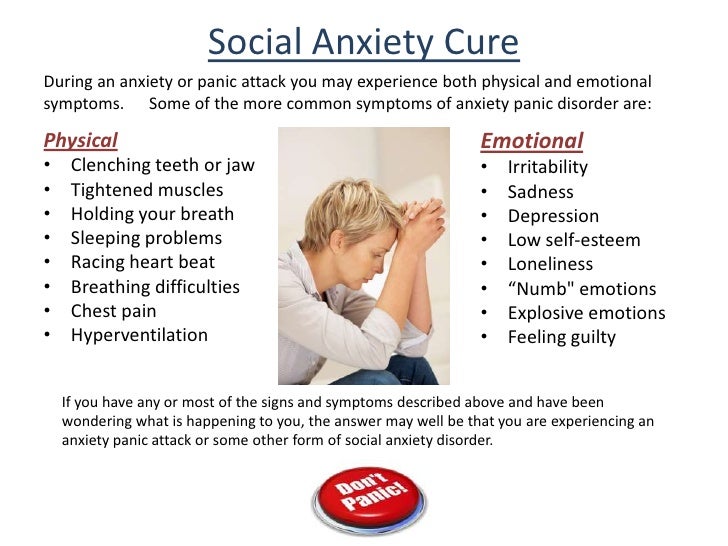
Set realistic expectations. It's important to be realistic about the challenges of schizophrenia. Help your loved one set and achieve manageable goals, and be patient with the pace of recovery.
Empower your loved one. Be careful that you're not taking over and doing things for your loved one that they are capable of doing. Support your loved one while still encouraging as much independence and self-help as possible.
Helping someone with schizophrenia tip 1: Encourage treatment and self-help
Encouraging treatment and self-help is a cornerstone of helping a loved one with schizophrenia. While medication is an important element of schizophrenia treatment, your loved one's recovery depends on other factors as well. Self-help strategies such as changing to a healthy diet, managing stress, exercising, and seeking social support can have a profound effect on your loved one's symptoms, feelings, and self-esteem. And the more someone does for themselves, the less hopeless and helpless they'll feel, and the more likely their doctor will be able to reduce their medication.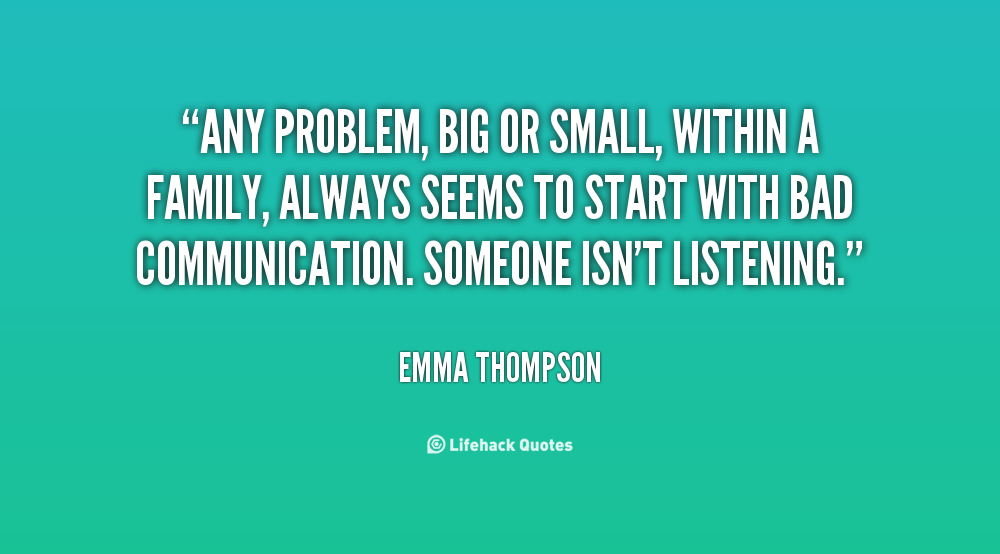 Your encouragement and support can be crucial to your loved one starting and continuing a program of self-help.
Your encouragement and support can be crucial to your loved one starting and continuing a program of self-help.
[Read: How to Help Someone with Mental Illness Accept Treatment]
Starting treatment
Often, the first challenge of treatment is convincing the person with schizophrenia to see a doctor. To people experiencing delusions, hallucinations, and paranoia, there is no need for medical intervention because the voices and conspiracy theories are real.
If a loved one with schizophrenia is reluctant to see a doctor, try to:
Provide options. Your loved one may be more willing to see a doctor if he or she has some control over the situation. If your relative appears suspicious of you, suggest that another person accompany them to the appointment. You can also give your loved one a choice of doctors.
Focus on a particular symptom. Someone with schizophrenia may resist seeing a doctor out of fear of being judged or labeled “crazy. ” You can make the doctor less threatening by suggesting a visit in order to deal with a specific symptom such as insomnia or lack of energy.
” You can make the doctor less threatening by suggesting a visit in order to deal with a specific symptom such as insomnia or lack of energy.
Tips for supporting a loved one's schizophrenia treatment
Seek help right away. Early intervention makes a difference in the course of schizophrenia, so help your loved one find a good doctor and start treatment.
Be collaborative. When your loved one has a voice in their own treatment, they will be more motivated to work towards recovery.
Encourage self-help. Since schizophrenia is often episodic, periods of remission from the severest symptoms can provide an opportunity for your loved one to employ self-help strategies that may limit the length and frequency of future episodes.
Tip 2: Build your support network
To better support and care for someone with schizophrenia, you need to find help, encouragement, and understanding from others. The more support you have, the better it will be for both you and your loved one.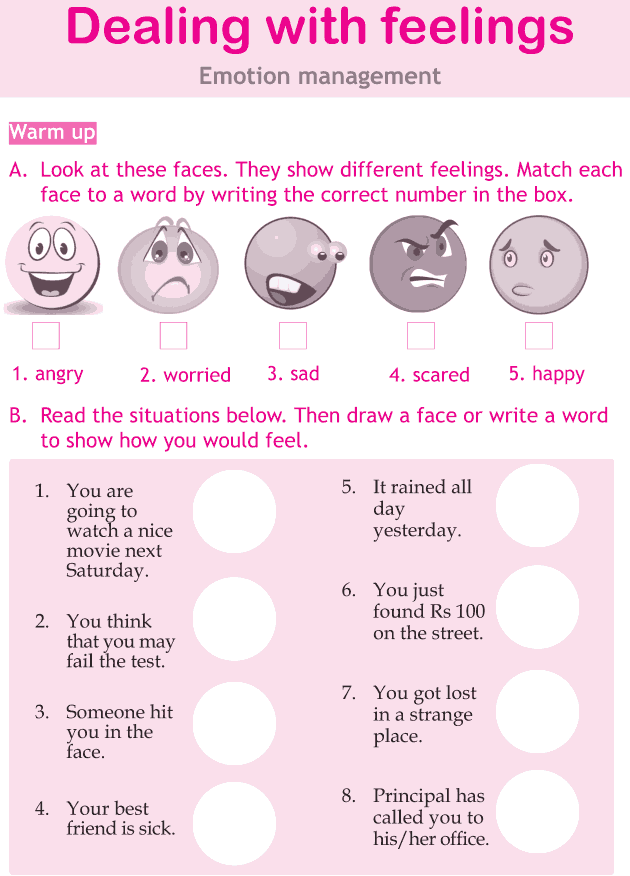
Recognize your own limits. Be realistic about the level of support and care you can provide. You can't do it all, and you won't be much help to a loved one if you're exhausted, so seek help where you can.
Join a support group. Meeting others who know first-hand what you're going through can help reduce feelings of isolation and fear. Support groups provide an invaluable venue for the relatives of people with schizophrenia to share experiences, advice, and information.
Turn to trusted friends and family members. Ask loved ones if you can call on them for support. Most people will be flattered by your request.
Seek out new friends. If you don't feel that you have anyone to turn to, it's never too late to build new friendships and improve your support network.
Take advantage of support services. Ask your loved one's doctor or therapist about respite services and other support available in your area, or contact local hospitals and mental health clinics.
With over 25,000 licensed counselors, BetterHelp has a therapist that fits your needs. It's easy, affordable, and convenient.
GET 20% OFF
Online-Therapy.com is a complete toolbox of support, when you need it, on your schedule. It only takes a few minutes to sign up.
GET 20% OFF
Teen Counseling is an online therapy service for teens and young adults. Connect with your counselor by video, phone, or chat.
GET 20% OFF
Tip 3: Monitor medication
Once in treatment, careful monitoring can ensure that your loved one stays on track and gets the most out of medication.
Take side effects seriously. Many people with schizophrenia stop taking their medication because of side effects. Bring any distressing side effects to the attention of the doctor, who may be able to reduce the dose, switch to another antipsychotic, or add medication to counter the side effect.
Encourage your loved one to take medication regularly. Even with side effects under control, some people with schizophrenia refuse medication or have trouble remembering their daily dose. Medication reminder apps, weekly pillboxes, and calendars can help. Some medications are available as long-lasting weekly or monthly injections instead of daily pills.
Even with side effects under control, some people with schizophrenia refuse medication or have trouble remembering their daily dose. Medication reminder apps, weekly pillboxes, and calendars can help. Some medications are available as long-lasting weekly or monthly injections instead of daily pills.
Be careful to avoid drug interactions. Help your loved one avoid any dangerous drug interactions by giving the doctor a complete list of the drugs and supplements they're taking. Mixing alcohol or illegal drugs with schizophrenia medication is harmful, so talk to the doctor if your relative has a substance abuse problem.
Track your family member's progress. A mood-tracking app, journal, or diary is a good way to track changes in your family member's behavior, outlook, and other symptoms in response to medication.
Stopping medication is the most frequent cause of relapse in schizophrenia, so it's extremely important that your family member continues to take all medication as directed. While relapse can occur even if a person is taking medication as prescribed, you may be able to prevent a full-blown crisis by recognizing the warning signs and taking immediate steps.
While relapse can occur even if a person is taking medication as prescribed, you may be able to prevent a full-blown crisis by recognizing the warning signs and taking immediate steps.
Common warning signs of schizophrenia relapse
- Insomnia
- Social withdrawal
- Deterioration of personal hygiene
- Increasing paranoia
- Hostility
- Confusing or nonsensical speech
- Strange disappearances
- Hallucinations
If you notice any warning signs of relapse or other indications that your family member's symptoms of schizophrenia are getting worse, call the doctor right away.
Tip 5: Prepare for crisis situations
Despite your best efforts to prevent relapse, there may be times when your loved one's condition deteriorates rapidly and hospitalization is required to keep them safe. Having an emergency plan ready for an acute psychotic episode will help you handle the crisis safely and quickly. A good emergency plan for someone with schizophrenia includes:
A good emergency plan for someone with schizophrenia includes:
- Emergency contact information for your loved one's doctor and therapists.
- The address and phone number of the hospital you will go to for psychiatric admission.
- Friends or relatives who will take care of other children or dependents while you deal with the crisis.
It's also wise to go over the emergency plan with your family member. The crisis situation may be less frightening to your loved one if they know what to expect during an emergency.
10 tips for handling a schizophrenia crisis
- Remember that you cannot reason with acute psychosis.
- The person may be terrified by their own feelings of loss of control.
- Don't express irritation or anger.
- Speak quietly and calmly, do not shout or threaten the person.
- Don't use sarcasm as a weapon.
- Decrease distractions by turning off the TV, computer, any fluorescent lights that hum, etc.
- Ask any casual visitors to leave—the fewer people the better.
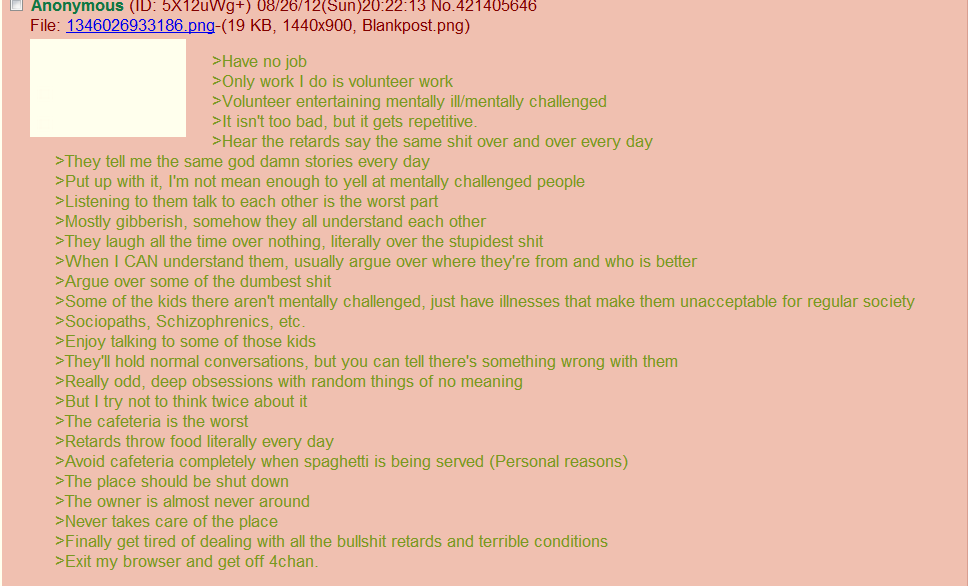
- Avoid direct, continuous eye contact.
- Avoid touching the person.
- Sit down and ask the person to sit down as well.
Tip 6: Explore housing options
Someone with schizophrenia needs a stable, supportive place to live, but finding the right living situation can be challenging.
- Can your loved one care for themselves?
- How much support do they need with daily activities?
- Does your loved one have a drug or alcohol problem?
- How much treatment supervision does your loved one require?
Living with family
Living with family can be a good option for someone with schizophrenia if their family members understand the illness well, have a strong support system of their own, and are able to provide whatever assistance is needed.
At-home arrangements are less likely to be successful if the person with schizophrenia uses drugs or alcohol, resists taking medication, or is aggressive or uncooperative.
| Choosing the Right Housing Option for Someone with Schizophrenia |
| Living with family works best if: |
|
| Living with family is not advised if: |
|
Try not to feel guilty if you are unequipped to house someone with schizophrenia. If you can't look after your own needs or those of other family members while caring for your loved one, they will be better off elsewhere.
Residential options outside the family home
If an at-home living arrangement isn't the right fit, explore the residential facilities in your community.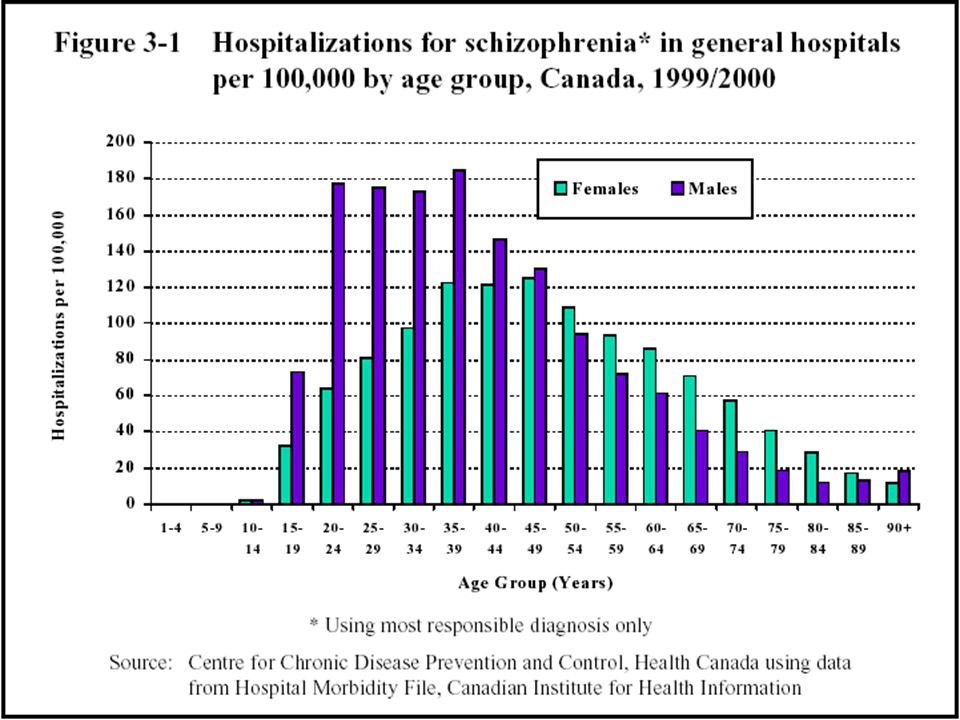
Options in your area may include:
Residential treatment facilities or 24-hour care homes. A more structured living environment for those requiring greater assistance or suffering an acute psychotic episode.
Transitional group home. An intensive program that helps individuals transition back into society and avoid relapse after a crisis or hospitalization.
Foster or boarding homes. A group living situation offering a degree of independence, while providing meals and other basic necessities.
Supervised apartments. Residents live alone or share an apartment, with staff members available on-site to provide assistance and support.
Tip 7: Take care of yourself
Taking care of yourself isn't selfish. In fact, it's just as important for your loved one with schizophrenia that you look after your own health needs.
Schizophrenia can place an incredible amount of stress on the family. It can take over your life and burn you out. And if you're stressed, you'll make the person with schizophrenia stressed and trigger or exacerbate their symptoms.
It can take over your life and burn you out. And if you're stressed, you'll make the person with schizophrenia stressed and trigger or exacerbate their symptoms.
Since adopting healthy lifestyle habits is also important for your loved one in managing schizophrenia symptoms, by taking care of your own health you can act as a role model. You may even be able to pursue some of these steps together, helping to motivate and encourage each other.
Connect with others. Social interaction with someone who cares about you is the most effective way to relieve stress. It's important for both you and the person with schizophrenia to have other people you can connect with face-to-face—someone you can talk to for an uninterrupted period of time, someone who will listen without judging or continually becoming distracted. That person may be a friend, family member, clergy member, or professional therapist.
Get regular exercise. Physical activity reduces stress and releases endorphins, powerful chemicals in your brain that energize your spirits and make you feel good.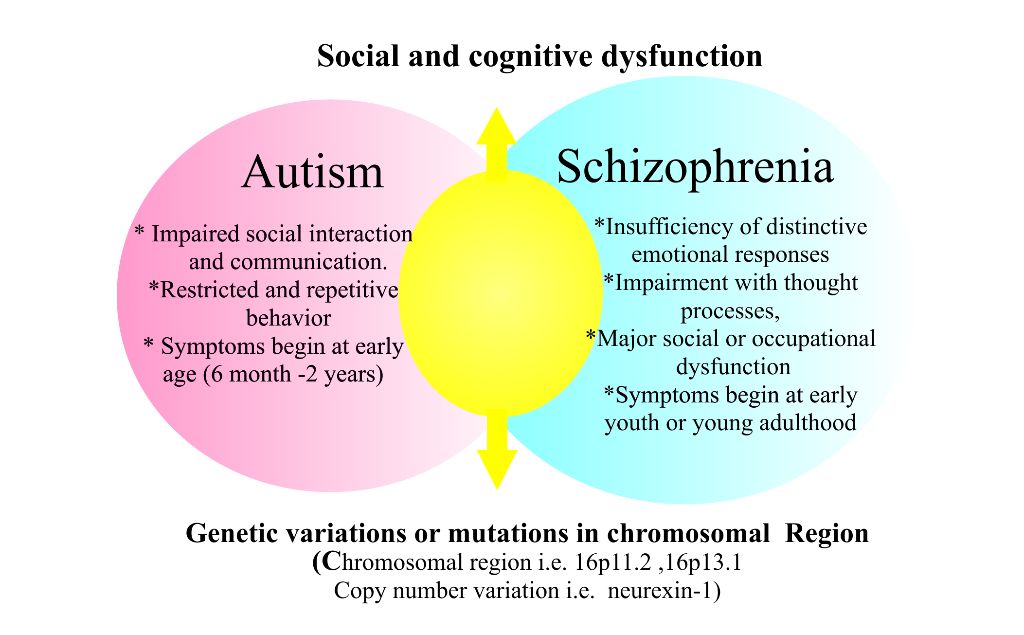 Whether you exercise alone, with a friend, or with your loved one with schizophrenia, aim for 30 minutes of activity on most days, or if it's easier, three 10-minute sessions.
Whether you exercise alone, with a friend, or with your loved one with schizophrenia, aim for 30 minutes of activity on most days, or if it's easier, three 10-minute sessions.
Eat a healthy diet. What you eat has a direct impact on the way you feel. Minimize sugar and refined carbs, foods that quickly lead to a crash in mood and energy. Boost your intake of Omega-3 fatty acids from fatty fish, fish oil, walnuts, and flaxseeds to help improve your focus, energy, and outlook. The same diet tips can help manage your loved one's symptoms, too.
Practice acceptance. Instead of dwelling on the unfairness of your loved one's diagnosis, accept your feelings, even the negative ones. It can make a huge difference in your ability to manage stress and balance your moods. See HelpGuide's Emotional Intelligence Toolkit for more.
Seek out joy. Making time for fun isn't indulgent—it's necessary. Schedule time into your day for things you enjoy, whether it's spending time in nature, visiting friends, or reading a good book. Encourage your loved one with schizophrenia to do the same.
Encourage your loved one with schizophrenia to do the same.
Look after your health. Neglecting your health will only add to the stress in your life. Get enough sleep and stay on top of any medical conditions.
Use relaxation techniques. Techniques such as meditation, deep breathing, yoga, or progressive muscle relaxation can put the brakes on stress and bring your mind and body back into balance.
Authors: Melinda Smith, M.A., Lawrence Robinson, and Jeanne Segal, Ph.D.
- References
Schizophrenia Spectrum and Other Psychotic Disorders. (2013). In Diagnostic and Statistical Manual of Mental Disorders. American Psychiatric Association. https://doi.
 org/10.1176/appi.books.9780890425787.x02_Schizophrenia_Spectrum
org/10.1176/appi.books.9780890425787.x02_Schizophrenia_SpectrumPilling, S., P. Bebbington, E. Kuipers, P. Garety, J. Geddes, G. Orbach, and C. Morgan. “Psychological Treatments in Schizophrenia: I. Meta-Analysis of Family Intervention and Cognitive Behaviour Therapy.” Psychological Medicine 32, no. 5 (July 2002): 763–82. https://doi.org/10.1017/s0033291702005895
Lloyd, Joanne, Helen Lloyd, Ray Fitzpatrick, and Michele Peters. “Treatment Outcomes in Schizophrenia: Qualitative Study of the Views of Family Carers.” BMC Psychiatry 17, no. 1 (July 21, 2017): 266. https://doi.org/10.1186/s12888-017-1418-8
Ganguly, Pronab, Abdrabo Soliman, and Ahmed A. Moustafa. “Holistic Management of Schizophrenia Symptoms Using Pharmacological and Non-Pharmacological Treatment.” Frontiers in Public Health 6 (2018): 166. https://doi.org/10.3389/fpubh.2018.00166
Knight, Edward L. “Self-Help and Serious Mental Illness.” Medscape General Medicine 8, no. 1 (March 15, 2006): 68.
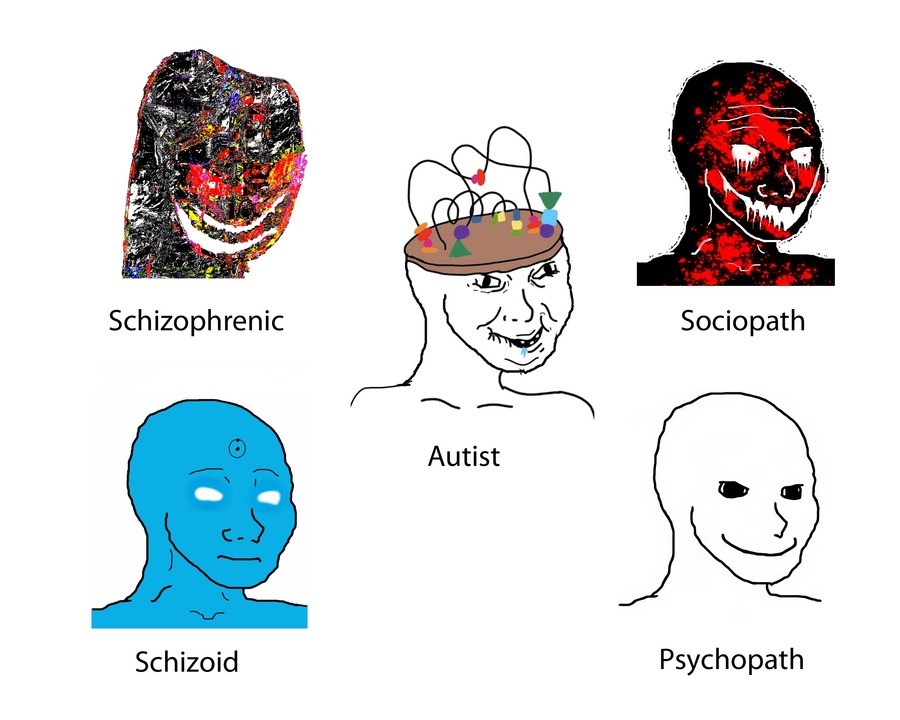 https://www.ncbi.nlm.nih.gov/pmc/articles/PMC1681955/
https://www.ncbi.nlm.nih.gov/pmc/articles/PMC1681955/“Self-Management: The Experiences and Views of Self-Management of People with a Diagnosis of Schizophrenia – Social Care Online.” Accessed November 2, 2021. https://www.scie-socialcareonline.org.uk/self-management-the-experiences-and-views-of-self-management-of-people-with-a-diagnosis-of-schizophrenia/r/a11G00000017tP5IAI
Stępnicki, Piotr, Magda Kondej, and Agnieszka A. Kaczor. “Current Concepts and Treatments of Schizophrenia.” Molecules: A Journal of Synthetic Chemistry and Natural Product Chemistry 23, no. 8 (August 20, 2018): 2087. https://doi.org/10.3390/molecules23082087
Patel, Krishna R., Jessica Cherian, Kunj Gohil, and Dylan Atkinson. “Schizophrenia: Overview and Treatment Options.” Pharmacy and Therapeutics 39, no. 9 (September 2014): 638–45. https://www.ncbi.nlm.nih.gov/pmc/articles/PMC4159061/
Biagianti, Bruno, Sophia H. Quraishi, and Danielle A. Schlosser. “Potential Benefits of Incorporating Peer-to-Peer Interactions Into Digital Interventions for Psychotic Disorders: A Systematic Review.
 ” Psychiatric Services 69, no. 4 (April 1, 2018): 377–88. https://doi.org/10.1176/appi.ps.201700283
” Psychiatric Services 69, no. 4 (April 1, 2018): 377–88. https://doi.org/10.1176/appi.ps.201700283
Schizophrenia: The Journey to Recovery (PDF) – Family guide to schizophrenia assessment and treatment. (Schizophrenia Society of Canada)
60 Tips for Helping People who have Schizophrenia – Tips for communicating with someone who has schizophrenia, handling a crisis, and avoiding relapses. (Schizophrenia.com)
Finding a Good Residential Option for Someone with Severe Mental Illness – Provides suggestions for choosing the right living arrangement for someone with schizophrenia. (Schizophrenia.com)
Helplines and support
In the U.S.: Call 1-800-950-6264 or visit NAMI.org
UK: Call 0300 5000 927 or visit Rethink: Schizophrenia
Australia: Call 1800 18 7263 or visit Sane Australia
Canada: Visit Schizophrenia Society of Canada for links to regional societies that offer helplines and local services
India: Call the Vandrevala Foundation Helpline at 1860 2662 345 or 1800 2333 330
Last updated: December 5, 2022
How to communicate with a loved one who has a mental disorder: 9 simple rules
Mind and feelings
Nika Golikova
April 5, 2019 18:29
The author of the film "Love in the time of antidepressants" Paul Gallash has been taking care of his mother for more than 20 years : She was diagnosed with a mental disorder when Paul was only seven. He was there when my mother refused to be treated, forgot to feed the children, offended loved ones. Paul shared with Afisha Daily the rules that have helped him and his mother all this time. nine0003
He was there when my mother refused to be treated, forgot to feed the children, offended loved ones. Paul shared with Afisha Daily the rules that have helped him and his mother all this time. nine0003
You can react to a diagnosis in completely different ways - and this is normal
When it all started, I was seven years old. Around the same time, I found out about my mother's depression - and felt relieved because she had been acting strange for a long time.
My sister and I were sometimes very scared: we lived in some kind of chaos, and after the doctors diagnosed my mother, we realized that this chaos has a name - a mental disorder. It helped us understand what was going on. nine0003
At some point, I began to realize that it was no longer safe to be around my mother. And it was kind of a test. I wanted to trust her and have a strong family relationship with her, but at the same time, I had to take care of myself and defend myself when needed.
If a person refuses to be treated, try to understand him
At the beginning of the illness, my mother was categorically against treatment. Already in my teens, I wanted to do everything to stop her manic episodes. And I wondered why she refused to be treated, but when I got older, I understood her skepticism in relation to medicines and everything else. nine0003
Medicines have a strong effect on your brain, changing your feelings, attitudes towards family, life and children. It is difficult to accept this, because you actually become a different person. I think the most important thing here is to listen to the person and try to understand what exactly he is afraid of. And support in every possible way.
For example, my mother went to sessions with a psychotherapist for a long time, and at one moment I realized that I didn’t even know him and didn’t understand if I could trust him with my mother. It is not right. People often hope that if their loved ones go to the hospital, then sooner or later everything will be fine again.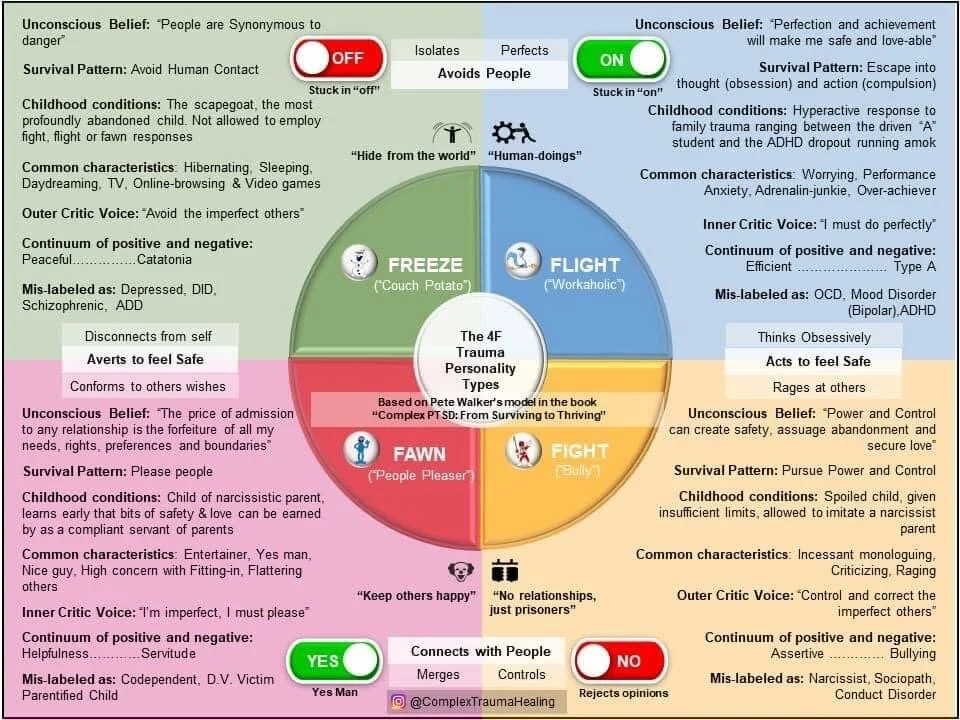 I think if you really care about the person, you need to talk to those who are trying to cure him .
I think if you really care about the person, you need to talk to those who are trying to cure him .
Still need to communicate with each other. You can’t think that therapy with doctors is enough - it’s not. My sister and I were constantly talking to my mother, letting her know that we were there. It helps to figure out what is at the root of her problems.
When my mother started taking medication, she became very depressed: for example, she didn't like the city we live in because it had too many concrete buildings; she didn't like driving; she didn't like the food. I could tell her that she's crazy, that's why she perceives everything like that. But of course I didn't. I realized that anything can make her angry, so sometimes I just listened carefully to her and tried to calm her down, and sometimes I sincerely agreed with her. Then she understood that I was on her side. nine0003
Be angry not at your loved one, but at his illness
I got angry with my mother many times. When I was a teenager, and she still refused to take medicine, we often fought. Mom could just throw me out of the car in the city center, because we had a big fight and just couldn't be around.
When I was a teenager, and she still refused to take medicine, we often fought. Mom could just throw me out of the car in the city center, because we had a big fight and just couldn't be around.
When I realized her diagnosis, acceptance came to me. I learned to forgive not because I have to, but because I really wanted to . I realized that when she hurts me, it's not my mom, but her illness. But I'm sure that you can't just forgive and keep silent about it. When she hurt me, I always talked about how I feel. This helps to understand that the person hurts you not intentionally. nine0003
Learn to admit guilt and be responsible
It seems to me that psychologists who try to convince both parties that no one is to blame are wrong. A person who offended his relatives and children cannot be completely innocent. If he really believes that this is not his fault, he will not be able to realize that something is wrong with him.
I am against resentment, but I am for the realization of guilt . This applies to everyone, including those who struggle with mental illness. There is an episode in the film where my mother is talking to a psychologist and he is trying to help her think of herself as a small innocent child. But this is not so, she is not a child, she is an adult woman who has made mistakes. And the only way to overcome, to get over these mistakes is to admit them and take responsibility. nine0003
This applies to everyone, including those who struggle with mental illness. There is an episode in the film where my mother is talking to a psychologist and he is trying to help her think of herself as a small innocent child. But this is not so, she is not a child, she is an adult woman who has made mistakes. And the only way to overcome, to get over these mistakes is to admit them and take responsibility. nine0003
This also works the other way around: if I know I did something wrong with her, I will explain myself and apologize.
Sometimes you have to let a person vent their anger - and try not to take it to heart
It is important to understand that a person with a mental illness sometimes behaves asocially. It is very difficult to truly love someone who is experiencing such a state. Therefore, it seems to me that the best thing you can do is to ignore outbursts of anger. In the past, my mother has said so many horrible things to me that it's hard to imagine. If I took all this at face value, I would have already stopped communicating with her and left home forever. nine0003
If I took all this at face value, I would have already stopped communicating with her and left home forever. nine0003
Be more patient: it's difficult, but if you lose control of yourself at such moments, the situation can turn out badly . Give your loved one the opportunity to express their emotions without taking them to heart. And do not forget even at such moments to tell him how much you love him.
Sometimes it happens that you are the one who causes these outbreaks, because you spend a lot of time around a person, taking care of him. That was the case in my situation. Therefore, it is important to sometimes let your loved one be alone with you, to understand that he also needs personal space. nine0003
Share household chores and be understanding that your loved one may forget something
For a long time, none of us wanted to take responsibility for household chores: our house was filled with dirty dishes, laundry and garbage. It was terrible, but over time, my sister and I came to the conclusion that we should help my mother in many things. I learned how to take care of myself and others, cook, clean the house and keep everything clean and tidy. As is my sister.
I learned how to take care of myself and others, cook, clean the house and keep everything clean and tidy. As is my sister.
Mom was never particularly good at household chores: she could forget that there was no food in the fridge, and we ate chocolate chip cookies all day long. And sometimes mom had so much energy that she could clean the whole house to perfect cleanliness. But, of course, most often these duties passed to me and my sister.
Find your favorite thing to do for the two of you - and appreciate the pleasant moments that you spent together0018 .
My mother is a very adventurous woman. One of my happiest childhood memories: my mother picked me up with my sister from school in the middle of the day and said that we were going skiing. It was a crazy adventure and we really appreciated the time spent together.
Try to find activities that your loved ones really enjoy and do them together as often as possible.
You will have many difficult moments in life, but you will experience them much easier if you remember the moments of joy. In addition, it helps to realize how much you love them. nine0003
In addition, it helps to realize how much you love them. nine0003
Don't go through problems alone - and discuss difficulties with other relatives
Talking to my sister and grandparents helped me a lot. We were all very close during the period when my mother started to get sick. I understand that not everyone has relatives to whom you can turn, but you need to find a person who can listen to you.
I would advise children to turn to adults - for example, to teachers at school. Because it's especially important for children to have someone they can trust completely so they can feel secure when their parents can't provide that protection. It is important that there is a person who will explain that their experiences are important, that all this is not easy. This is where support comes in. Of course, there are children who have to take all the burden of responsibility on themselves, because they have no one to turn to, and this is sad. nine0003
And most importantly.
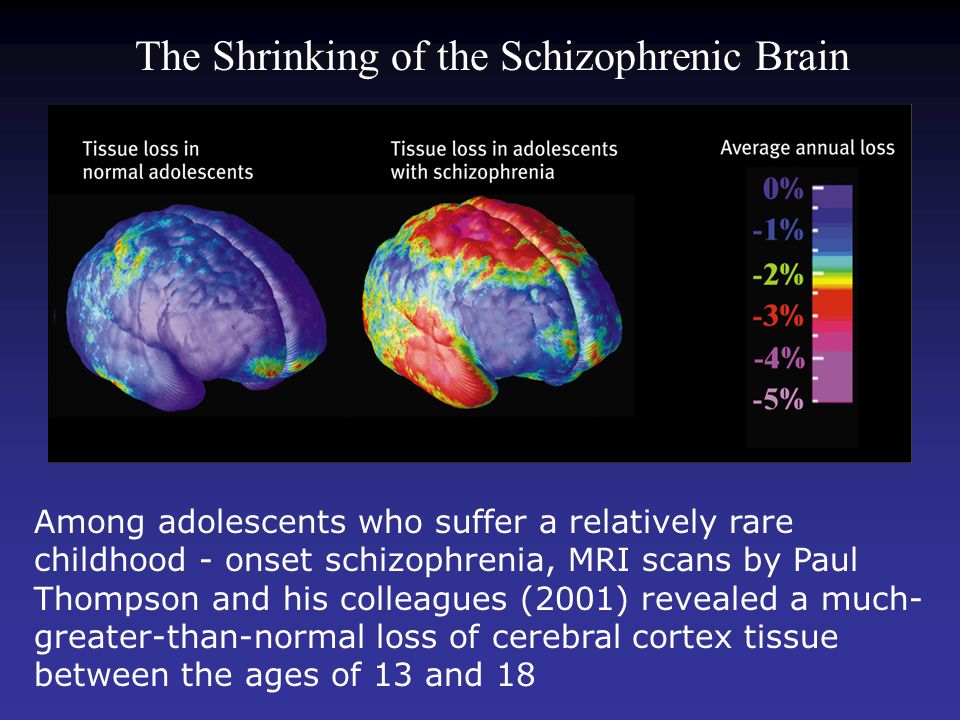 Do not forget about yourself — live
Do not forget about yourself — live It is necessary to separate care for loved ones and care for yourself. These are two equally important things in your life . Always remember this.
I knew I had to do both. Therefore, when I became an adult, I sometimes went on business trips or trips, during which I tried to reflect on my life. Of course, I still worried, but when I didn’t have to take care of my mother, I had a lot of free time to focus on myself. nine0003
Now I got married, I have a child, and the responsibilities that came along with the appearance of a family are no less important than taking care of my mother. I talked about this with my mother, and she understood me. Sooner or later, there had to come a point when she could no longer fully rely on me, and I think this is the natural evolution of a relationship. It was necessary to come to this. And we did it.
But this is not a story about escaping from one duty to another, it is about taking moral responsibility for one's life too. My mother can always count on me now, but she understands that now I have even more responsibility. nine0003
My mother can always count on me now, but she understands that now I have even more responsibility. nine0003
Australian director Paul Gallash's Love in the Age of Antidepressants will be screened on April 6 as part of the Doker Festival's Doc Therapy program, featuring 50 of the best films from around the world. "Doc Therapy" is a special section, all discussions within it will be held with the participation of psychologists. Details are on the festival website.
tell your friends
tags
familymedicinecommunicationsocietyhow to livepsychiatry
A schizophrenic's story: how an illness changed my whole life
Sign up for our ”Context” newsletter: it will help you understand the events.
Alice Evans was a student when she developed symptoms of schizophrenia. She spent the next 10 years at her parents' house. Here is her story.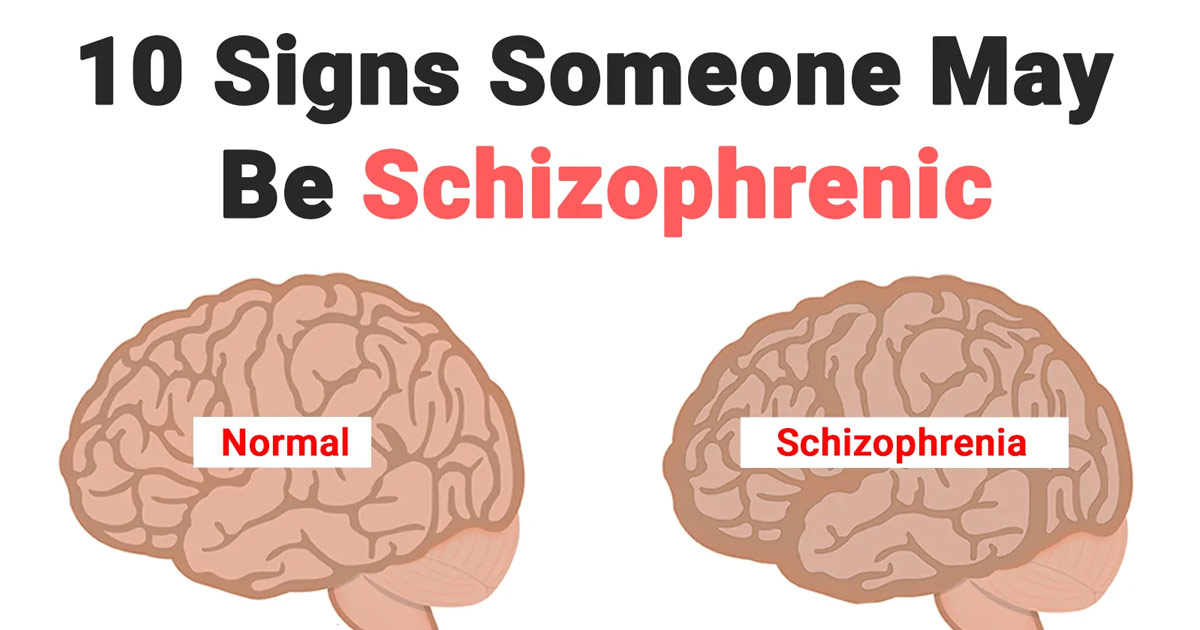
I first felt really bad when I was 20 years old. At that time I was studying at the university.
When I entered, I was uncomfortable being away from home, but gradually I made friends. I enjoyed studying, especially the drama course. Although during this period I was visited by many depressive thoughts. nine0003
I worked three jobs to pay my rent. Together with studies, this lifestyle at some point became unbearable.
I almost completely stopped sleeping. That's when the problems started.
It seemed to me that the surrounding world had lost its colors. This is how I can describe my state of mind at the time. Everything became gray and dull.
Thoughts and phrases began to elude me. I started to think about something and lost the thread. Plus, I couldn't speak. The words just didn't physically come out of my mouth. nine0003
Constant fears appeared. It was especially scary when I started to hear extraneous voices on the radio or on TV.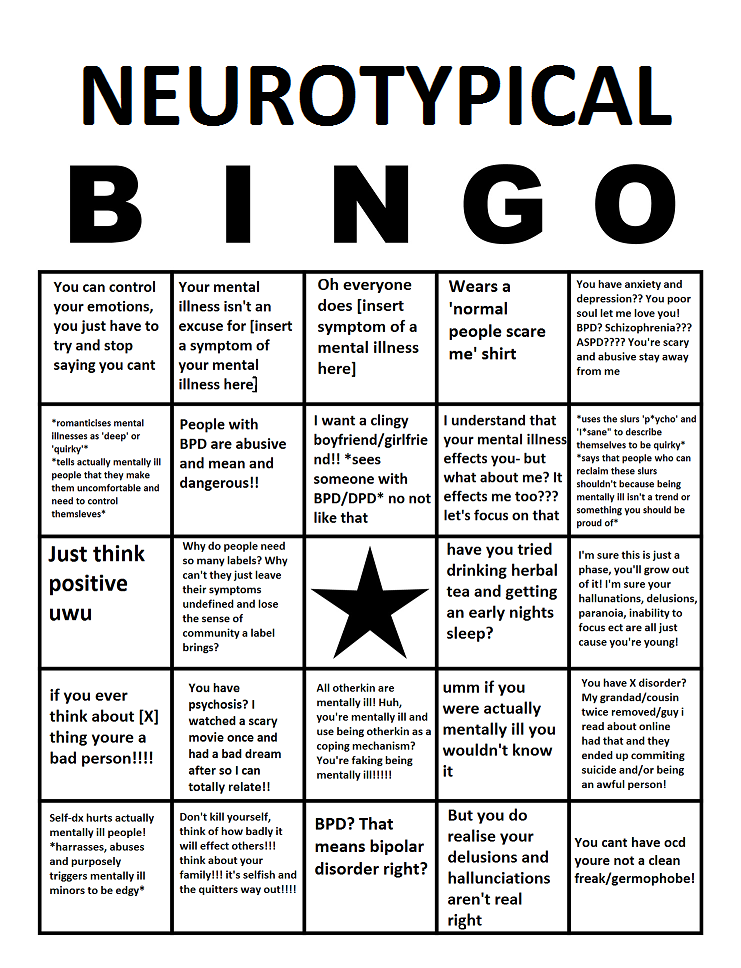 I did not understand what was happening, and did not realize how seriously I was ill.
I did not understand what was happening, and did not realize how seriously I was ill.
One weekend my uncle and aunt visited me. We were walking around the city, and suddenly I saw that everything around was empty, people disappeared, and buildings collapsed. I walked completely alone through a deserted, abandoned city.
Of course it wasn't, but during a psychic attack, the vision is your reality. And you can't snap your fingers to make it all go back. It's impossible. nine0003
In a fog
This period of my life passed in a blur. I was confused all the time, I felt exhausted and scared, so I don’t remember very much about those times.
Due to speech disorders, I could not tell my family and friends about how serious my condition was. I don't think I fully realized it myself. A person suffering from psychosis is most often afraid to admit it.
Image copyright AliceEvans
Image captionAlice was 20 years old when she began to show signs of schizophrenia
One day I left the house with no idea where I was going. I wandered the streets alone and lost. She got into some buses to get home, but did not know which route they were taking. There was no one around to help.
I wandered the streets alone and lost. She got into some buses to get home, but did not know which route they were taking. There was no one around to help.
Somehow, I still don't know how, I was picked up by my friends and taken to my parents in Devon.
After that, I did not leave my parents' house for 10 years. nine0003
My parents took me to a psychiatrist who spoke to me very kindly and prescribed drugs to relieve the symptoms of schizophrenia. These symptoms were expressed in hallucinations, various manias and mental confusion.
Side effects
When I heard my diagnosis - schizophrenia - I was even delighted. At least I understood what I was dealing with and could start fighting for the future.
The medicines worked almost immediately, but I wanted to have a course of therapy where I could talk about my illness. At that time, this kind of treatment was very poorly funded. And today, mentally ill people face the same problem. nine0003
And today, mentally ill people face the same problem. nine0003
Skip Podcast and continue reading.
Podcast
What was that?
We quickly, simply and clearly explain what happened, why it's important and what's next.
episodes
The End of the Story Podcast
While taking medication, I began to slowly move towards healing. Gradually, speech began to return, I began to wash myself and serve myself at an elementary level. Those who say that mental disorders do not affect the physical state are wrong. In my case, my body also failed. nine0003
Unfortunately, my drugs had side effects and I gained over 60 kilograms in about a year of treatment.
Excess weight was my problem in my school years, although now, looking back, I understand that then I had nothing to worry about. Such a powerful weight gain aggravated my condition. I felt unattractive, didn't want to see my friends, and my fear of going out made it impossible to play sports.
Such a powerful weight gain aggravated my condition. I felt unattractive, didn't want to see my friends, and my fear of going out made it impossible to play sports.
Then I found my first job in many years: washing dishes in a local pub. I put on headphones, turned on my favorite music and worked the whole shift like that, I even liked it. But, unfortunately, my health made itself felt, and I could not have a permanent job. It was kind of a vicious circle. nine0003
To a new life
But one day a miracle happened, thanks to which I found new friends. I have always liked music and art, long before my illness. And my mom convinced me to join the local drama club. I was terrified at the prospect of being in the company of strangers and playing on stage, but I was very well received there, and I got a role in a production that was being worked on.
Image copyright Alice Evans
Image captionAlice was unable to speak for a long time
It was very difficult for me to memorize the text, but it didn't annoy anyone.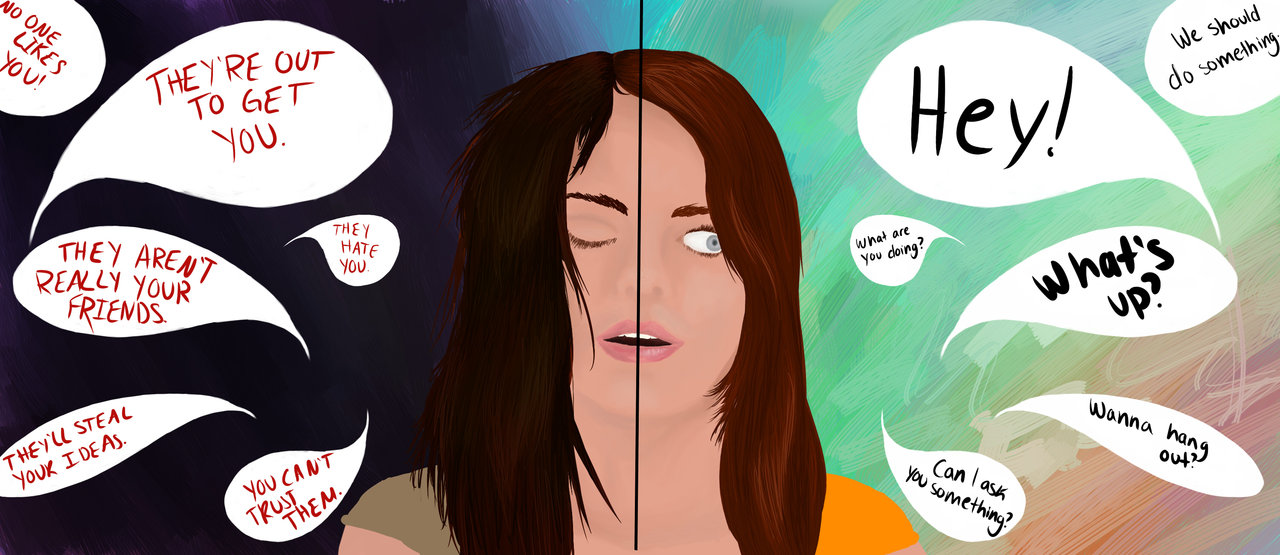 The guys had a good reaction and a sense of humor, they always saved the situation if I forgot the words.
The guys had a good reaction and a sense of humor, they always saved the situation if I forgot the words.
Most of the group I became friends with Tristan. He supported me in everything, and one day I told him about my schizophrenia. He also had some mental disorders, and it was easy for me to talk to him about it, knowing that he understood me.
One day he announced that he decided to enter the university and suggested that I also apply. I was horrified, but his strength and support, coupled with my own inner self-belief, did the trick. I applied and to my great surprise was accepted into the Chelsea Institute of Art. nine0003
And then my life began.
________________________________________________________________
Photo credit, BBC World Service
Photo captionOne of the symptoms of schizophrenia is withdrawing into oneself, disconnecting from the surrounding reality
A few facts about schizophrenia:
- One in every hundred people in Britain suffers schizophrenia
- Usually the disease manifests itself at about 20 years of age
- Symptoms of the disease are divided into positive and negative.
 The positive ones are hallucinations and manias, the negative ones are the lack of motivation, self-isolation, lack of interest in the surrounding life. Negative symptoms tend to be longer lasting and more difficult to treat. nine0003
The positive ones are hallucinations and manias, the negative ones are the lack of motivation, self-isolation, lack of interest in the surrounding life. Negative symptoms tend to be longer lasting and more difficult to treat. nine0003 Two years ago, my situation sank a little again. Being overweight prevented my body from effectively dealing with a lung infection, and I spent 10 days in intensive care with symptoms of asthma. Luckily, I made a full recovery and was allowed to undergo weight loss surgery—another major chapter in my healing story.
Image caption,This is what Alice looks like now
I volunteered for a local mental health charity. There I gained a lot of experience and useful skills. They also referred me to speech therapy, which also played a huge role in my return to normal life. Unfortunately, funding for the foundation was cut significantly, and the department I worked in was forced to close, to the disappointment of both staff and patients.

